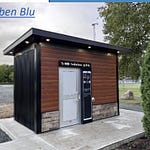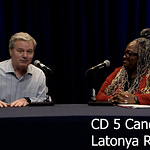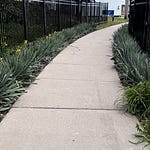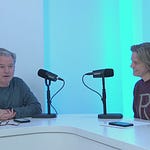Few institutions define Minneapolis like its parks. From neighborhood playgrounds to the Chain of Lakes, the system shapes daily life and civic identity — and it’s once again in the spotlight as the Park Board heads into election season. In this interview, Park Board President and District 6 Commissioner Cathy Abene talks about the balance between maintaining a world-class park system and keeping it financially and environmentally sustainable. Abene discusses the nuts and bolts of funding, the future of projects like North Commons and Hiawatha Golf Course, and why she believes pragmatic, mission-focused leadership is key to preserving the city’s greatest public asset.
Background and Role
Cathy Abene, District 6 Commissioner since 2022 and current Park Board President, brings a career in civil and environmental engineering to the job. As a University of Minnesota water resources engineer, she manages stormwater and infrastructure—experience she says translates directly to stewarding Minneapolis’s park system. The Park Board is a part-time, elected body; commissioners are compensated, but most, like Abene, also hold full-time jobs.
District Priorities and Public Perception
Abene says door-knocking reveals broad satisfaction with Minneapolis parks, which recently won a national gold medal for operations. While public meetings skew toward specific grievances, most residents tell her the system is well-maintained and accessible—nearly everyone lives within a ten-minute walk of a park. Current flashpoints include the Hiawatha Golf Course redesign and ongoing debates about balancing access with environmental sustainability.
Park Funding and Budgeting
She underscored the difference between capital and operating budgets: capital dollars (often via city/state bonding) fund one-time projects like roofs, pools, and major renovations; operating dollars (largely property-tax supported) pay staff, programming, utilities, and routine maintenance. By law and practice, those pools can’t be swapped—so canceling a capital project doesn’t free up operating money, a point she says some candidates and residents misunderstand.
Major Projects and Safety Challenges
Abene highlighted the North Commons Park rebuild as a community-driven, long-promised investment now under construction. On safety, she noted the Park Board’s own police department and patrols, with staffing pressures mirroring the city’s. She favors targeted technology—like controlled entry and plate capture at problem lots—to deter violence, alongside the Board’s long-standing strategy of youth programming and jobs (the Park Board is the city’s largest youth employer).
Future Vision and Priorities
Priorities include environmental stewardship (stormwater, water quality, climate adaptation), financial sustainability, and measuring parks’ economic impact to strengthen support from city and state partners. She’s open to modest new revenue (e.g., tasteful field-fence ads, stormwater utility funding) while rejecting billboards or heavy commercialization. Abene frames reelection as continuing mission-focused governance that balances recreation, equity, and ecological health.
For more information, visit: https://www.cathyabene.com/










